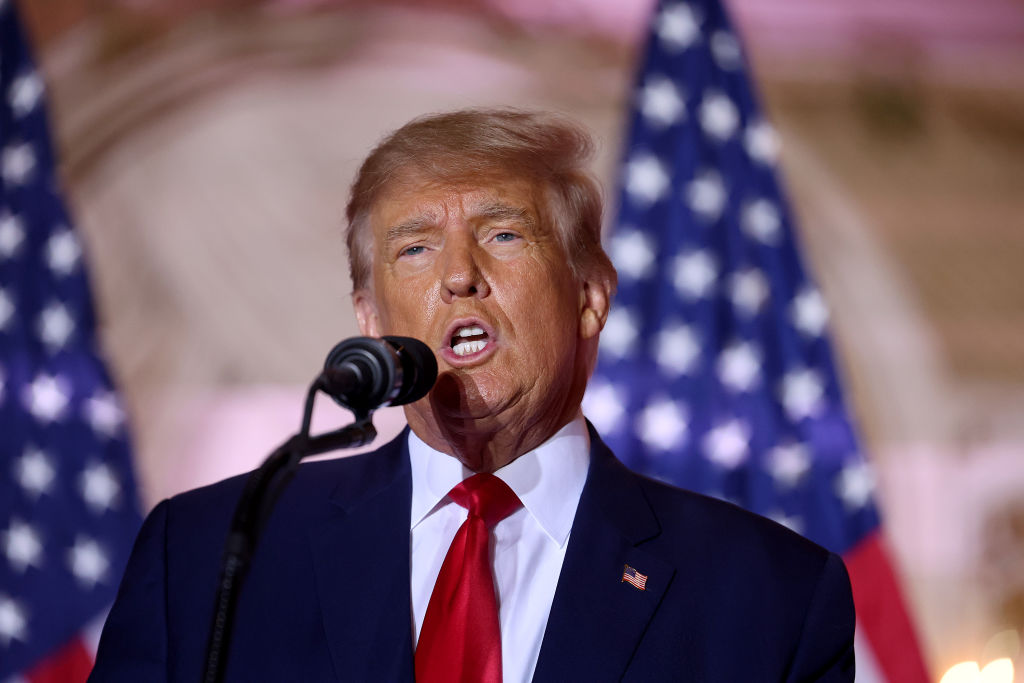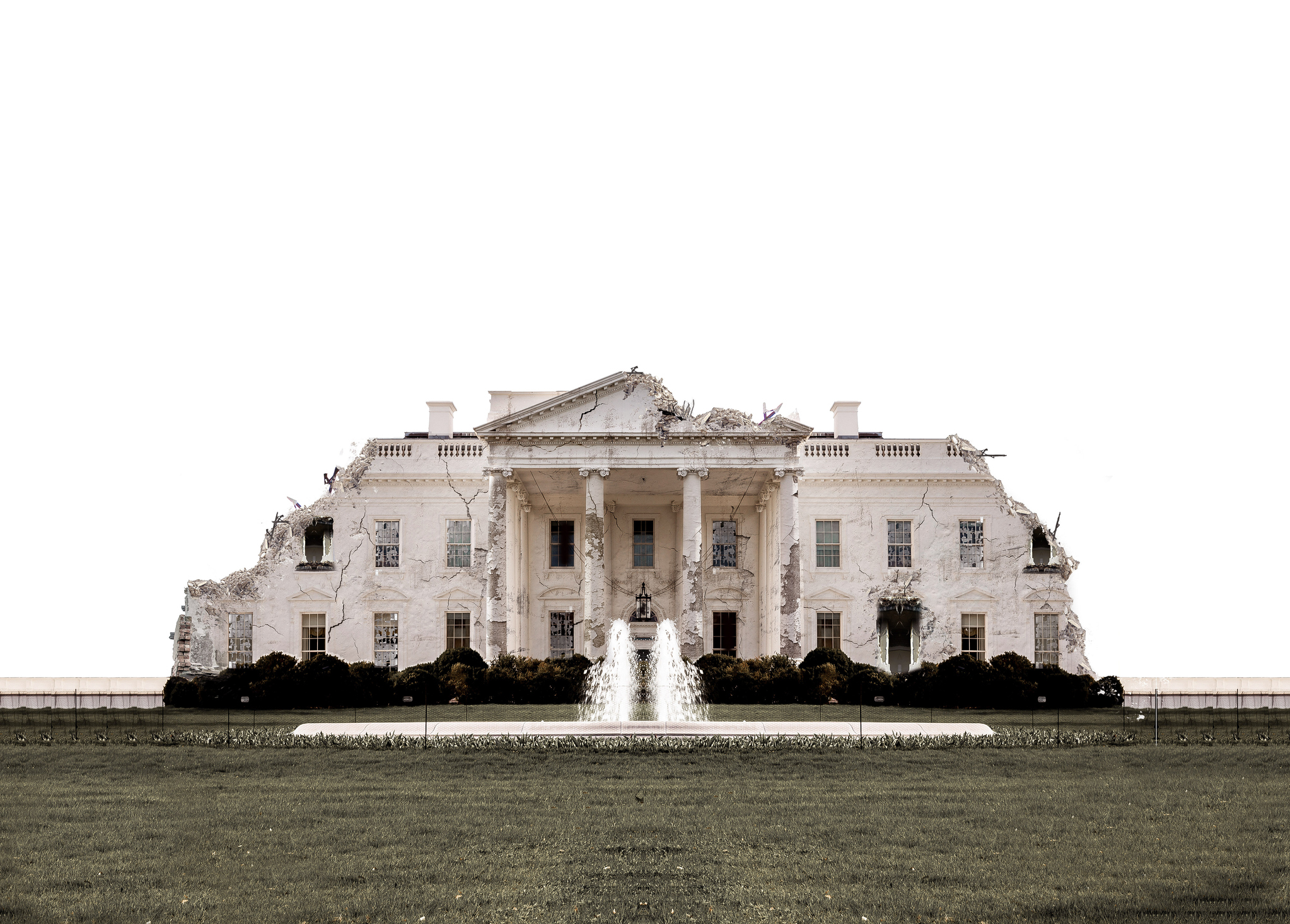We cannot afford a repeat performance.
What Must Be Done

Some non-negotiable qualifications for holding high office as a Republican.
This essay, outlining the priorities and concerns that should shape the Right’s approach to the 2024 election, introduces an ongoing series on the same topic. New articles will be added periodically and can be found linked at the bottom of the page.
After a historically disappointing electoral showing in the midterms for the GOP, we are now subjected to endless pundit speculation, “expert” analysis, and anticipatory 2024 political horserace handicapping. The question “what next for the Right?” is an urgent one because we find ourselves, as we have for the last six years at least, in a kind of rolling constitutional crisis.
This crisis is the culmination of a more than century-long assault on the Declaration of Independence, the principle of natural justice, the American Constitution, republicanism, and free government. The perpetrators of this assault may be variously referred to as Progressives, or the Left, or any of the other anti-American interest groups which have slowly but surely fused into one coalition. The word “Woke” has emerged as a useful shorthand for the modern version of this coalition. The term, originally one expressed with pride on the Left as a sign of proper ideological orthodoxy, has been appropriated by the Right to identify and deride the latest priorities of leftism. These priorities include nothing less than destroying the tenets of American justice and constitutionalism, as well as those that had served as the bedrock of the material and spiritual prosperity of Western civilization. This pernicious project is cloaked in quasi-sophisticated and quasi-academic jargon like “antiracism,” “equity,” and “social justice.”
Drawing on more than 125 years of philosophical, academic, journalistic, cultural, and political work and institution-building, the woke have seized control over American life and public discourse. It is to the Right’s shame that the full scope of the problem evaded systematic analysis (to say nothing of responsible and spirited political opposition and coalition-building) until at least the 1990s. Many of my colleagues at the Claremont Institute, some now dearly departed but many still at the height of their powers, have conducted and continue to write just such analyses. Indeed, the Claremont Institute was founded in 1979 on the premise that the very serious philosophical, cultural, and constitutional degradation at work in American national life required a reorientation of the opposition.
Woke leftism in current American politics draws on a long tradition of hostility to the Constitution and the American way of life. As my colleague Charles Kesler has discussed elsewhere, that opposition has its intellectual roots in the late 19th century, saw its political debut in the Wilson Administration, came to fruition in the 1930s under FDR, experienced explosive growth in the second half of the 1960s under LBJ’s political coalition, and has now reached full maturity in the post-Cold War era. Much like the rhetorical sleights of hand mentioned above (antiracism, etc.), the Left’s story about this history is pitched (often half-consciously) as the mere updating of our constitutional order to the realities of modern life and the final fulfillment of the promise of full and equal civil rights at the heart of American justice.
Don’t believe it. The principles at the core of the Left’s project have always been hostile to those expressed at the founding of America. The overriding and most consistent tenet of the modern Left’s project is that “expert” rule, guided by the latest “advances” in the social sciences, must be given free reign if we are to achieve justice. The parochial, particularistic, grasping, scheming, and ignorant ways of normal democratic politics must give way to rational, “enlightened,” and politically “neutral” bureaucratic rule. Oliver Wendell Holmes, Jr. or Woodrow Wilson (or even LBJ!) certainly didn’t envision Ibram X. Kendi’s proposed Department of Antiracism. But the spirit of this constitutional monstrosity—especially its reliance on “expertise,” its disdain for federalism, and its hostility to the normal give-and-take of representative government (which is to say, politics)—would be right at home in the Progressivism of the 1890s, the liberalism of FDR, or LBJ’s Great Society.
What’s worse, the spirit of modern leftism, especially its commitment to bureaucratic rule over normal politics, now infuses nearly every major political, cultural, and educational institution in America. In other words, we are not now and have not been for some time engaged in the business of “normal” politics. We are fighting over constitutional fundamentals—over the type of regime or way of life we are to have in America, not the normal policy give-and-take of shifting partisan majorities through time. This Cold Civil War continues to heat up, and the coming decades will determine whether American government continues its slide into woke authoritarianism or whether the anti-constitutional trends of the last decades and even century are reversed and rolled back. Self-government, the true and equal protection of natural and civil rights, even freedom of thought itself, are in danger in America and across the West, as they have been for some time.
The Tasks at Hand
These are the stakes of the current and coming political fights. The rollback of this entrenched regime will require statesmanship of a high order. A multi-generational political coalition must be assembled, drawing and building upon current American electoral trends. National electoral successes will have to be secured at the presidential and congressional level and shrewd political and policy reforms will need to be coordinated, advanced, sold to the public, passed, and implemented. Electoral successes for the Right at the state level will have to be consolidated and expanded, with the goal of restoring a robust federalism that hasn’t existed for decades. Responsible and shrewd joint action by the national government and state governments will be the best way to restore federalism. Barring the existence of responsible and shrewd national majorities, state legislatures and governors will have to interpose themselves between the Feds and the constituents in their states to protect their rights. Many political and institutional muscles, atrophied after decades of neglect, will need to be built back up.
The good news is that this herculean task creates opportunities for a Hercules or two. Ambitious and intelligent leaders, both current and aspiring, have a once-in-a-lifetime opportunity to do great good for their country and their fellow citizens. Enterprising and excellent Americans can continue, or start, political work that may secure their names in the list of great American benefactors and statesmen. The presidency is the main prize, of course, but congressmen, senators, and especially enterprising governors will be indispensable as well.
As we look to the 2024 race for the presidency, it’s most useful to list the main challenges and opportunities that will face any aspirant to that esteemed office. What exactly to do in any of these areas will depend upon circumstances, authority, precedent, available resources, likelihood of success, and the rank ordering of priorities, all with a bow to that merciless taskmaster, necessity. In other words: prudence. But even abstracting away from those all-important particulars, it is clear at the outset that any worthy candidate for the presidency, indeed any political leader of national prominence, needs first to understand the current crisis and orient himself accordingly. These are the main issues, ranked loosely in order of more to less urgent, facing Americans today.
The Cancerous Spread of Woke Leftism: An ideology that teaches a people to despise their history and most of its heroes must be considered an existential threat to national survival on par with the threat of international Communism at the height of the Cold War. America is not perfect, because no nation has ever been or can be. But wokeism teaches that nearly the entire political and economic history of America prior to the 1960s (or even to this day, if one consults the bleeding edge of academic leftism) is a tale of unmitigated racism, sexism, colonialism, xenophobia, and any other new useful -ism that may bubble up as needed out of your local cultural studies department.
Any worthy national leader must oppose Woke at every possible turn, while relentlessly illustrating to the persuadable segment of the American public that this totalitarian ideology is incompatible with Americanism, freedom of thought, and national survival. Start with opposition to the most insane innovations of the Left over the last decade, like sexualizing children through “trans”-education or encouraging them to divide one another by race, oppressor and oppressed, starting in Kindergarten. Then work your way backward to the less obviously extreme but equally insidious first principles driving all this: that human will or desire is the only guide to morality rather than nature. This cancerous ideology is metastasizing—it’s time to stop the spread and then start aggressive treatment to eradicate it. America needs a “normal party” (either existing or new) that stands implacably against the cultural jihad being waged by the Left on truth, beauty, and the American way of life.
A common objection from many who are similarly concerned about this issue is that wokies are too entrenched across major institutions—corporate, educational, and public—and so this task is hopeless. You’ll suffer Don Quixote’s fate rather than Hercules’. But as usual, the Right has only just begun to try. We ought to embark on “bold, persistent experimentation” in this arena. There will be many tools lying around with which to bludgeon wokery in the eyes of the public—to take just one example: the salaries for diversity make-work jobs across academia, the corporate world, and in the administrative bureaucracy, state and federal.
Education: The rise of Woke leftism is directly indebted to its deeply sunk roots in education from pre-school through graduate school (including law, medicine, and now, even “hard” sciences like engineering and physics). The federal government’s role in the creation and durability of this ideological capture is vast. Through the Department of Education and other programs, the federal government wields an extraordinary amount of power. It doles out money, with millions of strings attached, that reach into every locale in America. It empowers credentialing institutions; funds NGOs, promotes certain lines of research or data collection in line with the woke agenda and at the expense of alternatives; and picks thousands of winners and losers every month all across the country to advance the woke ideology. Root out and reverse this trend wherever possible. Fight to get “critical race theory”—wokeism’s formal expression—out of all our schools. That emphatically includes public universities, which must be entirely free of CRT or lose public funding from red states. Federal officials should also move to extirpate CRT from the service academies and then the military more broadly.
Immigration: We are in the middle of the largest border crisis in American history, while at the same time experiencing one of two high-water marks for percentage of foreign-born residents. Right now, at the mid-point of one term of the Biden Administration, it’s quite possible that we have allowed 5-10 million illegal immigrants into this country (nobody knows the actual number, partly because there are longstanding and entrenched interests, including in the bureaucracy and high in the executive branch and Congress, that do not want anyone to know). A goal that was mostly implicit in the designs of many that pushed for the transformation of immigration policy in the 1960s is now explicit, even celebrated, across the Left: the cultural and demographic transformation of America (with the added bonus of the importation of millions of new voters that disproportionately vote for the party of the Left). The woke logic of it makes sense. A “too-white” America spent 2/3 of its history oppressing the “Global South,” the narrative goes, so it’s only right and just that America pays reparations, so to speak, through de facto open borders, especially to immigrants from that region of the world.
Assimilation of new immigrants, especially through education and acculturation, is vital to the long-term political stability and success of a multiethnic democracy. There are limits to assimilation, especially as you admit immigrants with cultural differences more and more divergent from the historical composition of the country’s people. This is doubly true if you have what America has built in earnest over the last 50 years at least: a state-sponsored educational curriculum that relentlessly pushes the opposite of assimilation. Much as the Left likes to deny it or call it “racist,” it is a fact of both common sense and social science that there’s an inverse relationship between ethno-cultural diversity and social trust. There are limits to how heterogenous and multicultural a nation can be and survive without utterly transforming (or disintegrating).
These cultural and political considerations, rather than economic ones, must be at the forefront of thinking about immigration (as useful as economic arguments are in the advocation of tighter controls). The first step for any president, of course, is stopping the flood of illegal immigration. Then come the hard policy questions and tradeoffs. A ten-year immigration moratorium, with some rare exceptions built in, would be a good place to start.
The Administrative State: Any aspirant to the presidency on the Right must understand the enormous obstacle to governance presented by the entrenched bureaucracy. Indeed, as my colleague John Marini has been arguing for over 40 years, the rise of the administrative state and the bureaucracy has effectively ended normal politics at the national level on all but a very circumscribed set of issues. President Trump made great strides in eliminating costly over-regulation, but he made not a dent in the real problem: the bureaucracy’s insulation from political accountability. The “schedule F” reform, at the very tail-end of the Trump Administration, was a step in the right direction. As would be the REINS Act, a proposed law that would require significant regulations to be approved by Congress; i.e., no more bureaucratic lawmaking by fiat. As Claremont’s Theo Wold has argued, the goal of any serious administration and its allies in Congress should be “disrupting, discrediting, and destroying” the permanent, unaccountable, and un-republican fourth branch of government. Only with that radical goal might a president and Congress make some real headway.
The Department of Justice and the FBI: A subset of the bureaucracy is that concerned with domestic law enforcement. Ever since Watergate, the trend in the culture at the Department of Justice has been toward neutrality or even independence from the executive branch and the president. While a DOJ unscrupulously wielded as a political weapon can be a dangerous thing, the Department does not stand above or outside the normal chain of command. Going back to George Washington, the Commander in Chief is the chief law enforcement officer in the country. After the abuses of recent years, not least of which were relentless efforts by large sections of President Trump’s justice department to hamstring and even destroy his presidency, plus the shameful political prosecutions of nonviolent (however misguided) January 6 protesters, the next AG needs to be appointed with one supreme task above others: a merciless house cleaning, involving deep cuts and lasting institutional reform.
As for the FBI, its abolition, or a reorganization amounting to in effect the same thing, is probably in order (the same goes for the CIA). The tools for a vastly expanded internal security service doing the bidding of the dominant political and cultural regime forces in America were set in place by the George W. Bush Administration to combat “terrorism.” Subsequent administrations, especially the Obama and now Biden Administrations, have pushed to enlarge the “terrorism” category to encompass their domestic political critics. The Biden Administration increasingly regards as “semi-fascist” (i.e., semi-criminal) any critics of the modern Left’s way of doing government, both as a matter of institutions (policy-making by bureaucrats instead of Congress) and policy (LGBTQ+ rights, nearly unlimited immigration, etc.). In the common parlance of our times, this is “our democracy.” Accordingly, a good portion of the domestic law enforcement apparatus is being asymmetrically turned against one group of Americans merely for their political views. This tendency over the last 20 years must be addressed with energy and creativity by any incoming administration committed to preserving the American way of life and the equal protection of citizens’ rights. This means a president must choose the next attorney general wisely—the job will require tenacity, creativity, wisdom, and courage.
Big Tech, The Media, and the Intelligence Community: With the recent release of the “Twitter Files” by the surprisingly public-spirited Elon Musk, it’s hard to determine where one of these institutions ends and the others begin. Insofar as Big Tech puts its thumbs on the scale of a good portion of online public deliberation, it is the equivalent, at least on the hot button issues du jour, of a domestic misinformation operation (it defends its activity, of course, by arguing that it’s countering misinformation).
The media is as insular a class as ever, literally in bed with the governing Left in many instances, and shares the cultural prejudices and governmental proclivities of the modern administrative state. Any leader seeking to enact serious reform of modern government must keep at front of mind this symbiotic relationship between the modern media and the administrative state (including the intelligence and law enforcement bureaucracy). Donald Trump knew this instinctually and from long experience–hence his great service of introducing the term Fake News Media. (An excellent book on the problem of modern media from which I’ve gained much insight is Claremont Institute alum James O’Keefe’s American Muckraker.)
A right-wing reflex, albeit one attenuated by each new betrayal, has been to trust the “patriots” in the intelligence community working tirelessly to protect us from foreign threats. But future presidents must remember that the CIA was born in the era when the modern American administrative state was being built and beginning to feel its powers. This may have been a necessary evil in the face of the challenge posed by the highly centralized and bureaucratic Soviet intelligence services. Nevertheless, any capable and public-spirited leader must always remember that America’s foreign intelligence apparatus has an innate prejudice in favor of its own corporate and partisan interests as well as the ever-leftward trajectory of the American administrative state as a whole.
Foreign Policy: A restoration of a truly “America First” foreign policy means going back to the spirit of independence and union embodied in great American foreign policy thinkers and practitioners like John Quincy Adams. American foreign policy today, along with the foreign policy establishment, takes its bearings from modern progressivism (and this is true of the establishment in both parties). It seeks the imperialistic, crusading, and utopian transformation of human nature and human society rather than the protection of concrete American interests. Woodrow Wilson wanted to make the world safe for democracy. The modern establishment foreign policy consensus is to make the world safe for “our democracy,” which means to transform the world into “our democracy”–which just coincidentally means in turn the institutional and policy arrangements favored by the modern Left. Fascism will stalk the globe until the Trans flag flies on every public building from Kiev to Kabul.
Above all any future president needs to appreciate the difficulties of conducting foreign policy when the first instinct of the foreign policy establishment is to view foreign conflicts through the lens of political and policy fights back at home.
Economic Policy: The middle class is the bulwark of all healthy republics. Whatever the originally intended outcomes of economic policy since the Reagan years, it is a lamentable fact that those policies have disproportionately benefited the financially and politically connected at the expense of normal working-class and middle-class Americans. Increased housing, healthcare, education, etc. expenses have outpaced the growth of real wages for these classes. Recalibrating that balance should be the goal of economic policy going forward.
One looming crisis is that of debt and spending. The national government especially has been on a spending spree and a debt jubilee without any real comparison in American history, especially in peacetime. As Jeffrey Anderson put it recently in the Claremont Review of Books, we’re on a “glidepath to insolvency.” The problem is there is right now very little appetite among the public to care or demand action about it. There is even less desire among the political class to touch the issue. We just keep kicking the can down the road. The best a president can do is probably prepare to address the issue aggressively and intelligently when the inevitable sovereign debt and/or currency crisis comes. Preparing properly for that unhappy event would be a salutary and public-spirited achievement all its own.
What Next?
So, what next for the Right? Support an agenda, in word and deed, from local school boards to the President of the United States, that understands the current crisis. Shun candidates and proposals that dismiss this existential threat. And do it all in good cheer and with the goal of persuading one’s fellow citizens and being magnanimous in victory, whenever possible, should one be worthy of and successful in securing victory.
A contentious GOP primary fight in 2024 looms. Given the need for a renewed and expanded coalition of the Right and the Center to get about the work of solving our constitutional crisis, it would behoove a serious party to use the primary to stress-test the best blend of appeal and seriousness. As ever, may the best man win.
The American Mind presents a range of perspectives. Views are writers’ own and do not necessarily represent those of The Claremont Institute.
The American Mind is a publication of the Claremont Institute, a non-profit 501(c)(3) organization, dedicated to restoring the principles of the American Founding to their rightful, preeminent authority in our national life. Interested in supporting our work? Gifts to the Claremont Institute are tax-deductible.
Whoever wins in 2024, our problems run deeper.
Donald Trump, the GOP, and 2024.
The 2022 midterms were a blessing in disguise for the GOP.
A time for unreasonable expectations and irrational politics.
And rightly so.






